With the start of the digital age, the medical field has changed in a big way. Mobile app development for healthcare has become an important part of the business very quickly. This new technology could not only make medical procedures easier, but it could also greatly improve the quality of life for patients. A few of the many benefits include making it easier to access health data, increasing the number of patients who get care remotely, decreasing the number of patients who have medical mistakes, bringing costs under control, and making it easier for people to talk to each other.
Creating mobile apps that can be used in healthcare is good in a number of ways. The creation of healthcare apps for mobile devices has become an important part of modern health care. We would do well to learn as much as we could about the subject at hand. In that regard, this article is a good place to start.
An Overview Of The Healthcare Mobile App Development Market
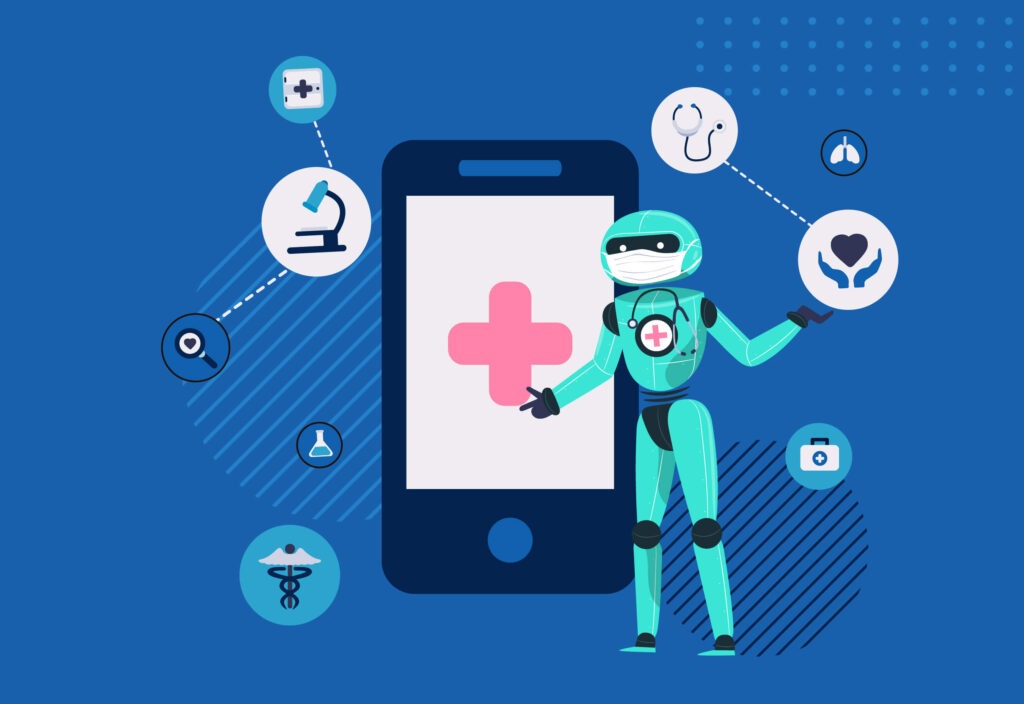
Healthcare is one of the most important and important industries on the international market. According to research done for the Deloitte Global Health Care Outlook report, the global health care market is worth a healthy $7.724 trillion right now. Companies that work in the healthcare market include all businesses that offer clinical services, health-related support, and make pharmaceuticals and medical equipment.
Because of this, it shouldn’t be a surprise that healthcare app development is in such high demand. Statista predicts that by the year 2025, the market for mobile healthcare applications, also called mHealth, will be worth more than $300 billion. One reason for the growth of the healthcare industry is that more and more companies are making software to solve problems and improve the quality of their services. The Covid-19 pandemic is another thing that has led to more people using health apps on their phones. Since the start of the Covid-19 outbreak, there has been a 60% rise in the number of healthcare apps downloaded.
During the first three months of 2022, Google Play had 52,565 apps for health care. Statista gives us this information. On the other hand, during the first three months of 2022, the Apple App Store had 51,370 healthcare and medical apps. All of these numbers show that there is a lot of potential for developing mobile apps for health care. But what does it really mean?
Recommended reading: Top 10 Healthcare Software Solutions That Work in the Future
What Is Mobile App Development For Healthcare?
A healthcare app lets users submit and track their health concerns in real time. Medical services, hospital stays, electronic health records, and insurance claims are all examples of this.
To be more specific, “healthcare mobile app development” is the process of making a mobile app whose main goal is to improve health and wellness. These could help a person better deal with their illness or reach their personal health goals. Also, these apps can be changed so that doctors and nurses can use them the same way that patients can. Applications for practice management, telemedicine, medical coding, and billing help people who work in healthcare run their businesses better.
It’s not enough for mobile apps to be useful; they also have to be easy to use. This is because the people who are supposed to use the program come from many different backgrounds. And not everyone may have the technical skills they need to use the app’s features. One of the most important things that affects how successful an app is likely to be is how well-designed the user interface is. We will delve into this further in later sections.
5 Use Cases Of Mobile App Development For Healthcare
A mobile app for health care helps bring in customers, and hospitals work more efficiently. These healthcare and medical apps make it easy and quick to do a wide range of things, from signing up a new patient to letting them leave the facility.
There are a lot of different uses for mobile health apps on the market right now. You should keep an eye on the latest trends in the healthcare industry and then use those trends to their fullest extent in your application.
1. Electronic Health Record (EHR)
When electronic health record (EHR) systems and healthcare apps work together, it’s much easier to track, store, and collect all of a patient’s information on a single platform. This makes it possible to save time, avoid mistakes, and share information about patients between different healthcare organizations.
2. Health Informational Exchange (HIE)
Monitoring a patient’s temperature, blood pressure, heart rate, and other vital signs is important for getting an accurate diagnosis, making sure the patient stays healthy, and improving their quality of life. The HIE solution makes it easy and quick to measure a patient’s vital parameters. All you need is a smartphone to verify the measurement. With this feature, the data may be sent more quickly, and it will be easier for the doctors to keep track of and analyze the important information.
3. Telehealth & Telemedicine
Today, there is a big need for telemedicine and telehealth software solutions like SaMD (Software as a medical device). After the COVID-19 outbreak and the rise in social isolation that followed, these apps have gained a large number of users. These technologies make it possible for doctors and nurses to provide health care services from a distance, connect with each other online, and treat patients faster and better.
4. RCM & Medical Billing
The “reliability-centered maintenance” (RCM) solution is a medical billing system that includes both the EHR and PM services (Electronic Health Record and Practice Management, respectively). This means you can switch between apps easily and quickly without having to sign in to each one separately. It also means that you can look at patient records and bills when you are not in the office. Before, you could only do these things when you were there. Users who use this solution won’t have to spend a lot of money on expensive hardware. In addition, they also don’t have to worry about IT issues, data encryption, or security compliance.
5. Built-In Diagnostic Systems
With these technologies, data from embedded devices and Internet of Things devices that have been connected to EHR platforms can be collected and processed. The doctors can quickly evaluate and diagnose the condition of a patient who lives far away. They can also track the patient’s progress and decide how to treat them best.
Recommended reading: 5 Benefits of Mobile Health Apps in the Future
5 Examples Of Healthcare Mobile Apps
Below you can find examples of the mobile healthcare apps that provide help for those who prioritize patients’ health, optimize time for their professional responsibilities and apply innovations in their practice.
1. VisualDx
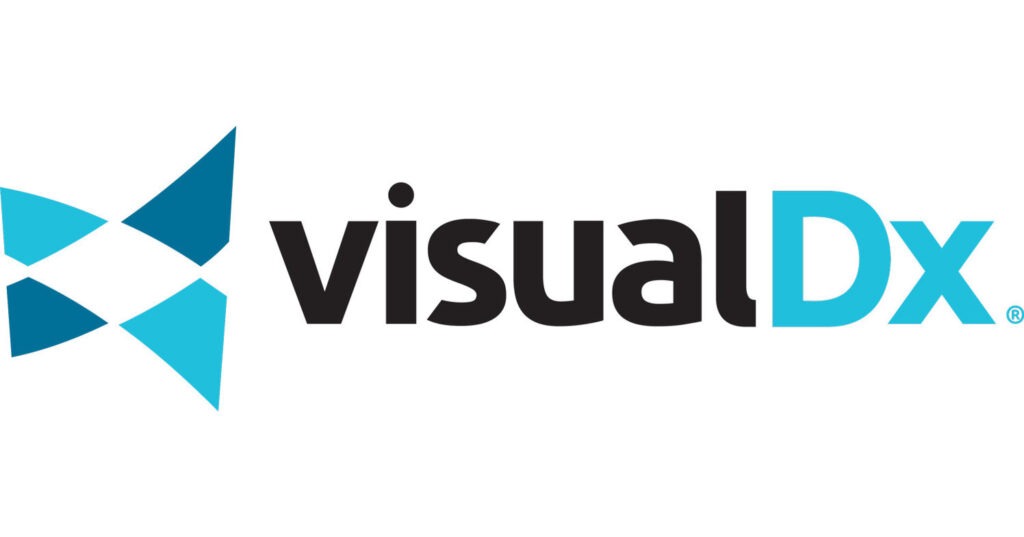
Support systems for making diagnostic decisions and mobile medical apps like VisualDx are becoming more and more popular. It is for people who want to get an accurate diagnosis and individualized counseling. The healthcare app also has one of the most complete libraries of medical images, and it uses telehealth technology to give patients access to smart search engines and virtual hospital apps.
2. ODC
This is one of the Designveloper’s ongoing projects. ODC is a platform for healthcare both patients and their doctors can both use. Through it, patients can sign up, schedule appointments with private doctors, order prescriptions, and get medical exams. All of the doctor’s paperwork, prescriptions, appointments, and financial transactions with patients can be managed efficiently via it as well.
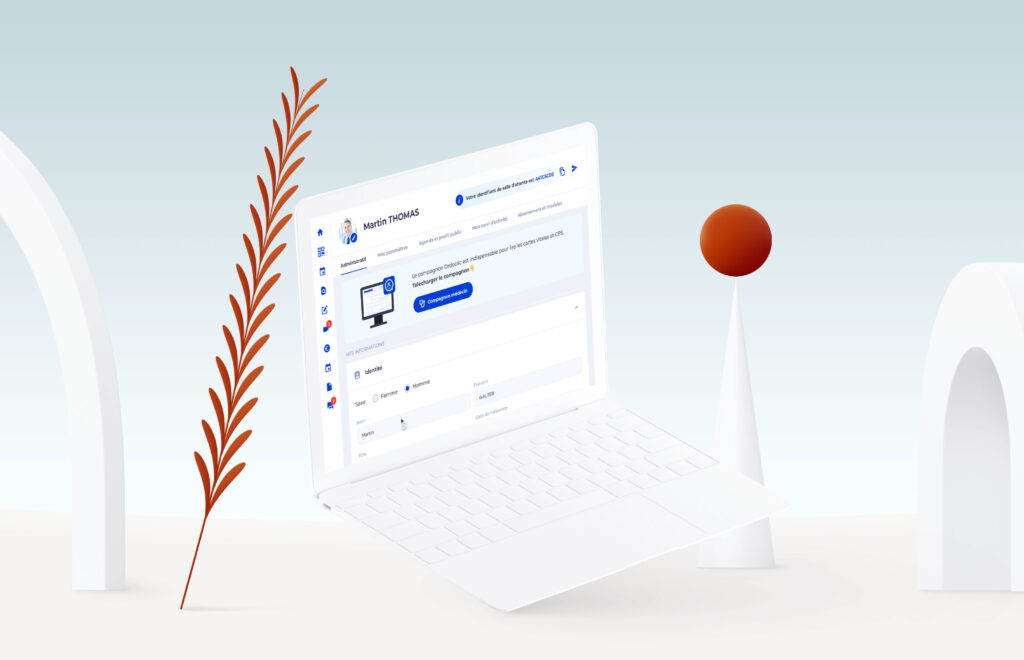
3. Doximity
This healthcare solution lets doctors, clinicians, and other medical professionals quickly and safely communicate with their patients and send HIPAA-compliant messages to their colleagues. Since Doximity uses telemedicine technology, patients don’t even have to download an app or make an account to talk to their doctors.
4. UpToDate
The UpToDate app for mobile devices is a good way to keep up with the latest medical news, as well as developments in workflow, HealthKit, and accomplishments. No matter if you are a medical student or a medical specialist, you can look at the “What’s New” section of the website to see headlines or search for specific medical topics. UpToDate has both written and video information about different medical treatments.
5. Talkspace
Talkspace is meant to be used for exactly what its name says: talking. On the other hand, it isn’t for small talk. Instead, it’s for talking to a trained therapist about mental health or life problems. Interestingly, it works the same way as Tinder. After you answer a series of questions, Talkspace will match you with a therapist. You can talk to your online therapist without worrying that your information will be shared with a third party. It will all be kept a secret.
Top 5 Considerations Regarding Mobile App Development For Healthcare
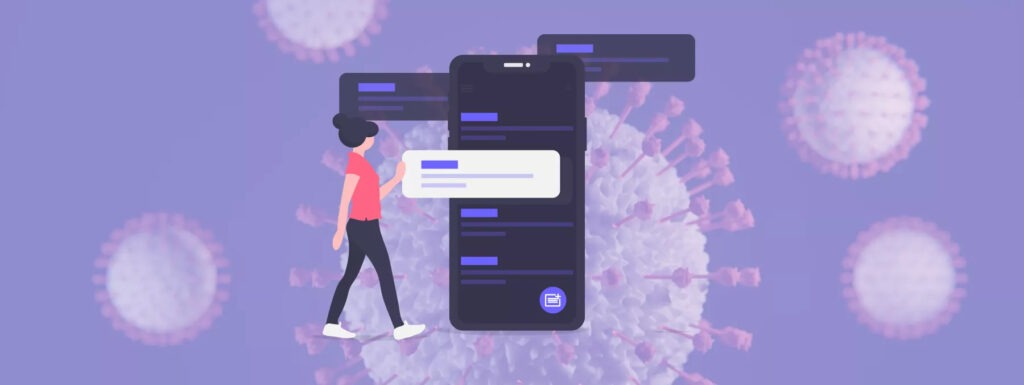
Sometimes it’s hard to design a product or find the right answer to a problem. If you want to make an app that works perfectly and meets the needs of everyone who wants it, you should keep a few things in mind and focus on the most important parts. Designveloper helps narrow it down for you to 5 most essential considerations before developing a mobile app for health care.
1. Integration
A hospital’s staff may use a wide range of software and hardware, such as electronic health record (EHR) solutions, practice management systems, dermatological sensors, and scheduling tools. So, you need to make sure that the mobile healthcare apps work well with all the other software programs that are already in place in a typical setting for your healthcare facility.
When the apps don’t work well together, these solutions aren’t as useful. Integration is seen as the most important thing by companies that make medical apps for this very reason.
2. Data Security
Many experts believe that personal data is a valuable commodity. Cybercriminals target personal and financial information, and health information is comparable. Doctors use a patient’s medical records to diagnose and recommend treatment, so this is indeed an issue that needs addressing.
The loss or alteration of patient medical data may have an impact on clinical outcomes. A healthcare app developer therefore must take care to adhere to HIPAA data security requirements when creating a medical app. This ensures data security and decreases the danger of data loss. Noncompliance with HIPAA may result in jail time.
3. UX And UI
User experience and user interface design is another important topic that can’t be said enough about. Pay close attention to UI/UX when building and tweaking a mobile app for health care. In practice, it is an important part of keeping people interested.
Today, both doctors and patients use medical apps and spend a lot of time entering different kinds of information. So, try to avoid complex design solutions and instead focus on how easy they are to use. Keep it simple. The aesthetics of the app should be cohesive, on point and make sense, with clear elements of the goal.
Recommended reading: The 6 Factors to Choose a UI UX Design Company
4. Testing
One of the first steps in the development process must always be a thorough test of the application. To see how well they work, the user interface, functionality, speed, digital security, compliance, and even scalability are all tested. Testing is done according to well-known rules, and any problems that are found are fixed as soon as possible.
When making a health app, following the rules is the most important thing. If you don’t do what the law says, you could be fined or even sent to jail. Every person who makes a healthcare app has to deal with following all the rules while keeping up with standards.
5. Digital Strategy
Though this step might not seem like it has much to do with making a health app, it is important. You should study the market and your competitors carefully, set clear goals, and figure out what problems your potential solution will solve. This is similar to the general process for app development of any kind, not just healthcare.
Most likely, you already know what kind of app you’re making and who you’re making it for. Whether you’re making an app for patients or for doctors, you need to come up with a plan for growth. How will your solution be sold and how will you make money from it? How many people would you like to reach? Ask yourself questions and answer them accordingly in order to formulate a clear plan.
A 5-Step Guide To Mobile App Development For Healthcare
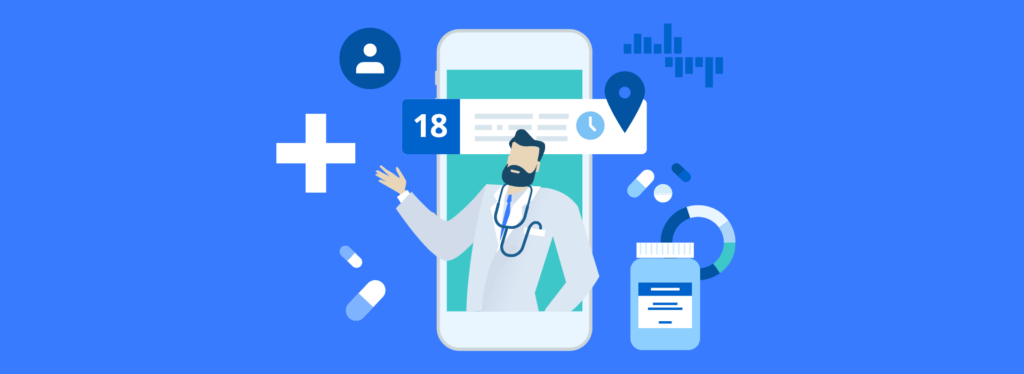
Mobile app development for healthcare is not easy at all. You will need to pay close attention to the many ways this app is different from others. Here is a detailed list of things you can do that will help you avoid making mistakes.
1. Identify The End-Users’ Needs
One of the most important steps in making healthcare apps is to know what the end users want. Find out what problems they are having with the current solution and how your application might help. Define the user persona as precisely as you can. This includes whether they want to use your solution or one already on the market.
It might also be a good idea to choose a specific area of healthcare to launch your app for. Generally speaking, your healthcare mobile app needs to be valuable and to reach that result we need adequate market analysis. This in addition will also help you identify the compatible platforms and technologies for the app.
2. Pay Attention To The Design
The most important part of an app’s success is its design, and a mHealth app’s design should be consistent and easy to use. The design should be easy for the end user to understand, and the fewer points of interaction there are, the better the experience will be for them.
In general, older people like easy navigation and larger font sizes. For younger people, they like a colorful user interface with unique features that are better. Who your audience is, whether they are patients, healthcare professionals, or the general public, will affect the design. In addition to the way the app looks, it is important to think about how it will look on different-sized screens. This part depends on the type of platform you’re trying to reach.
3. Ensuring HIPAA Compliance
Healthcare is a sensitive topic, and it’s not easy to make apps for it. If you want to make a healthcare app, you have to follow certain rules. For example, if you want to work in the USA, your application must follow all HIPAA rules. The General Data Protection Regulation says that any app in Europe that deals with personal information must follow the rules (GDPR).
The goal of the Health Insurance Portability and Accountability Act of 1996 (HIPAA) is to give patients and healthcare professionals the peace of mind that their personal health information will be kept safe. As an app developer, you must pay serious attention to this subject.
4. Build MVP
After making sure you’re using safe services and deciding what kind of healthcare app you want to make, you should build a minimum viable product (MVP). When making a minimum viable product (MVP) for a healthcare software, there are two things to keep in mind: build it quickly and make sure it can make money.
Before making a minimum viable product (MVP) for a healthcare software, you need to figure out which features are the most important, make sure they solve the problem, and keep iterating. Building a minimum viable product (MVP) gives you a competitive edge. This is because it lets you get into the market faster and start getting feedback from real customers sooner. This is the opposite of if you built a full-fledged product right away.
5. Hiring An App Development Company
If you hire reputable mobile healthcare app developers or a development team like the one at Designveloper, you can be sure that your app will have all of the most cutting-edge functions and features at the lowest possible cost. They would give a full picture of how to plan for, design, and make a healthcare application that can be scaled up.
Professionals who work for an app development company will take care of every part of the development process. They usually also have consulting support which offers helpful suggestions and new ideas. Most of the time, these companies also use the latest technologies and have a lot of experience in the field to help your projects move forward.
Recommended reading: How to Find the Top App Development Companies in Vietnam?
3 Common Mistakes That Cause Healthcare Businesses To Fail
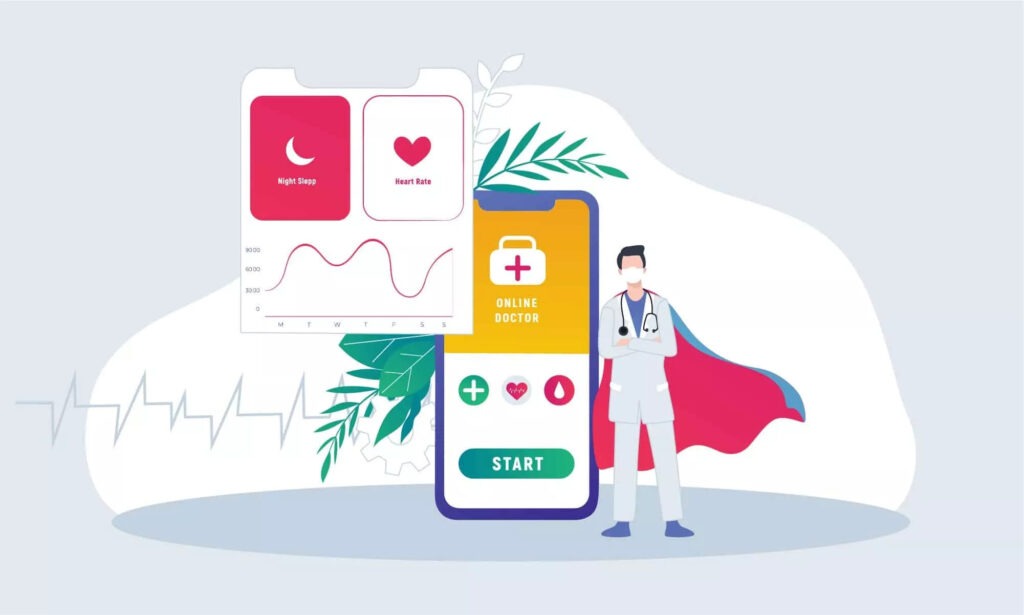
Even though the size of the healthcare industry keeps growing, many healthcare providers still think carefully before putting a healthcare app on the market. Why? There are many reasons why mobile healthcare solutions haven’t been able to make a huge difference in the lives of medical stakeholders and start a worldwide revolution away from traditional healthcare and toward mobile healthcare.
If you know why healthcare businesses fail and why healthcare solutions are struggling to make a lasting difference in the lives of millions of people, you will be able to design your mobile app in a way that will nudge those stakeholders who are on the fence about whether or not they should bring their medical life on mobile. With this information, you’ll be better able to make your mobile app.
1. Lack Of Focus On Accessibility And Design Simplicity
According to the data, the user will try to understand the application no more than three times before giving up. If a user doesn’t successfully sign up, make an appointment with a doctor, or get a referral, the app will probably be deleted. This is one of the many reasons why adhering to clarity and minimalist principles is crucial when developing an interface.
When a doctor and a patient want to talk to each other, it’s helpful to have a way for them to do so quickly and easily. This saves time for both parties by making it as easy as possible to save and get to data. It is important for the healthcare mobile app that users see (the frontend) and the part that they don’t see (the backend) to work together (backend). Because of this, it is important that the apps have labels that are placed in a way that makes navigation easy and quick, as well as color palettes that are calm and balanced.
2. Non-Compliance
In the mobile health sector, there are a number of compliance authorities whose job it is to watch and regulate how users to act. For a developer of a healthcare app, it’s even more important to know what compliances like HIPAA mean because they have a direct effect on how securely the app handles the data of its users and what checks it has in place to make sure the data, information, and advice given in the app are real.
Even though it can be hard to get a seal of approval, the fact that there isn’t one is one of the most important reasons why people in the healthcare industry don’t trust the system. The stakeholders stay away because there isn’t a HIPAA-compliant badge on the app’s home page or in the screenshots used in the App Store and Play Store. Also, the home screen of the app doesn’t have an FDA-approved mark.
3. Security Ignorance
There are a lot of scary stories about how the data of patients was hacked or lost because the storage infrastructure wasn’t safe. Even though security should be a priority for a healthcare business, there aren’t that many apps that take it seriously. If your firm excels in this regard, you’re already ahead of the curve.
Compliance, which we talked about in the previous section, is part of the solution. But in the end, it all comes down to the steps that each company takes to create a model that puts security first.
A Final Note
With the COVID-19 pandemic, the heat is on the healthcare market like it’s never been before. Healthcare organizations have started creating medical software or mobile apps that help them provide services more efficiently. This article on mobile app development for healthcare on Designveloper should help shed some light on the subject and give you a better idea of what you need to do if you want to join this field.
As a top software outsourcing and consulting company, don’t forget that Designveloper’s services cover a wide range of industries, including healthcare as well. Contact us to take advantage of our top-notch services and very resourceful approach to app development at a lower cost.
The post Mobile App Development for Healthcare: Things To Know appeared first on Designveloper.
August 09, 2022 at 04:42PM








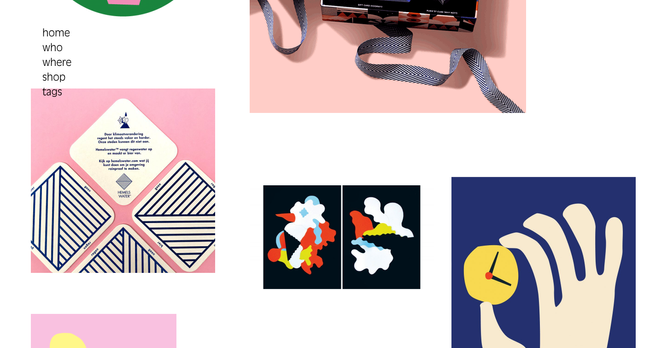


No comments:
Post a Comment